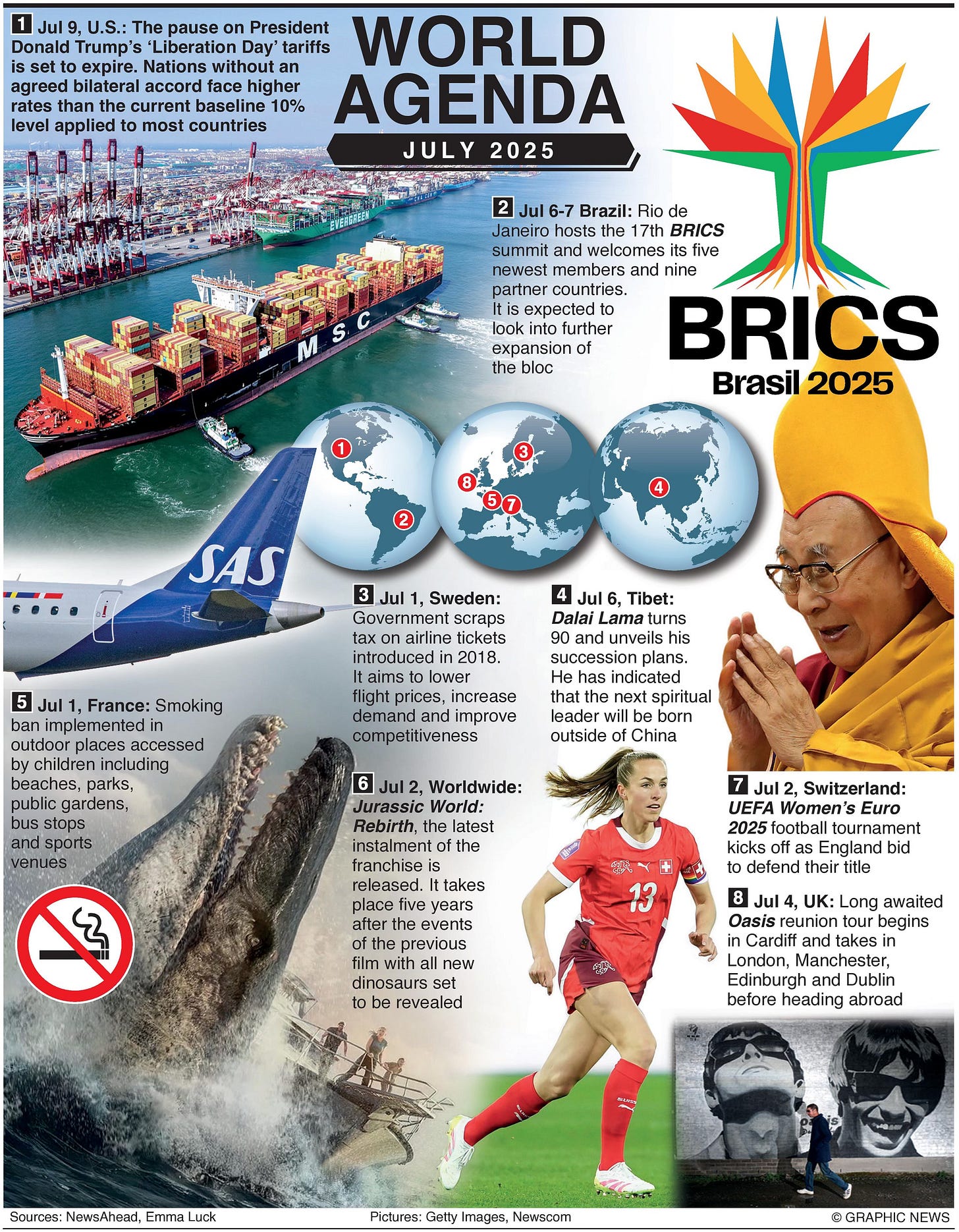Horizon Scanning (July 2025): Tariffs, Transcendence in Tibet and a Turbocharged BRICS
As the world enters the second half of 2025, there are a trio of developments on the geopolitical calendar that warrant attention.
Executive Summary
Tibet – Dalai Lama Turns 90 and Announces Succession Plans:
The Dalai Lama’s declaration that his successor will be born outside China directly challenges Beijing’s longstanding efforts to control Tibetan Buddhism and, by extension, Tibetan society. The move refreshes international scrutiny over the legitimacy of Beijing’s claims to Tibet and could reignite support for Tibetan self-determination.
Brazil – 17th BRICS Summit and Bloc Expansion:
BRICS expands with five new members, enhancing its geopolitical influence and reinforcing its role as a counterweight to Western-led institutions. With additions like Iran and the UAE, the bloc now controls a greater share of global fossil fuel supplies, strengthening its leverage in energy geopolitics.
United States – Expiry of ‘Liberation Day’ Tariff Pause:
As the U.S. tariff pause expires, countries without bilateral trade agreements face higher duties. This development is especially significant amid BRICS expansion, as Washington has threatened punitive tariffs on bloc members pursuing alternatives to the dollar.
Tibet: Dalai Lama Turns 90 and Announces Succession Plans (July 6, 2025)
The Dalai Lama’s 90th birthday and his public declaration that his successor will be born outside China represent a significant development in the ongoing struggle for Tibetan identity and autonomy. By insisting that the next Dalai Lama will be born in the “free world,” the spiritual leader directly challenges Beijing’s longstanding efforts to control Tibetan Buddhism, and by extension, Tibetan society. China views control over the Dalai Lama’s succession as vital to maintaining its authority in Tibet, fearing that an independent successor could fuel separatist sentiment and internationalize the Tibetan issue.
This move escalates the succession dispute and signals to the global community that Tibetans reject any spiritual leader appointed by the Chinese state. It also places the question of Tibetan autonomy and religious freedom squarely in the context of broader geopolitical contests, including China’s rising techno-authoritarianism and its efforts to reshape global norms around governance and identity. The Dalai Lama’s decision forces international actors to confront the legitimacy of Beijing’s claims over Tibet and could renew support for Tibetan self-determination, particularly among countries increasingly wary of China’s expanding influence.
Keep reading with a 7-day free trial
Subscribe to Geopolitical’s Substack to keep reading this post and get 7 days of free access to the full post archives.




